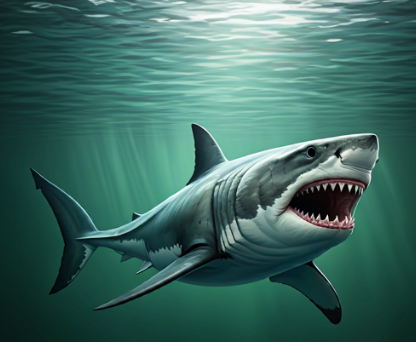Florida’s beaches have a reputation for more than just sun, sand, and surf. They’ve also become a hot spot for a rather unusual phenomenon: cocaine sharks. No, these aren’t sharks with a penchant for powder, but rather creatures that have been inadvertently exposed to the illicit drug due to the unfortunate practice of drug smugglers dropping bales of cocaine into the ocean near the state’s coast.
These drug-filled packages, often dropped from boats or planes, can end up washing ashore thanks to strong currents and storms. While this might seem like a problem easily solved by law enforcement, there’s also a more concerning issue: the potential impact on marine life.
Enter Dr. Tracy Fanara, a marine environmental engineer who’s been investigating the effects of these cocaine bales on sharks. Her research has revealed that sharks are indeed being exposed to cocaine, either by ingesting the bales or by swimming in contaminated waters.
But before you envision sharks doing the Macarena on the ocean floor, it’s important to note that the effects of cocaine on sharks aren’t entirely clear. While Fanara’s experiments have shown that sharks can exhibit erratic behavior when exposed to stimulants, it’s difficult to say definitively whether cocaine is the culprit.
So, are there really “cocaine sharks” out there? Well, it’s complicated. While the evidence suggests that sharks are being exposed to cocaine, the extent of the impact is still unknown. And let’s not forget about the other pollutants that are also making their way into Florida’s waterways, such as herbicides, fertilizers, and insecticides. These substances can also have harmful effects on marine life, including sharks.
So, while the idea of cocaine sharks might be a bit sensational, it’s a reminder that the problems facing our oceans are complex and multifaceted. And as we continue to explore the mysteries of the deep, it’s important to remember that our actions on land can have far-reaching consequences for the creatures of the sea.

